Lion's mane isn't just a gourmet mushroom. Its jam-packed with powerful vitamins, minerals, and active compounds like beta-glucans. That's why lion's mane is one of the top medicinal mushrooms being studied right now for numerous potential health benefits.
If you're interested in learning more about using lion's mane as a medicinal tea, you've come to the right place! In this article we'll cover what lion's mane mushrooms are, how to make tea at home, and all the steps to make and store your own lion's mane powder!
Let's get started:
Lion's mane mushrooms as a tea
For many mushroom lovers, making their supplement into a tea is the preferable way to consume in order to reap the maximum health benefits of the shroom. This is definitely the case for the multi-tasker of the mushroom world: lion’s mane.
Before we dive into why lion’s mane tea is a great beverage choice, let’s first discuss some background information on this funky fungi.
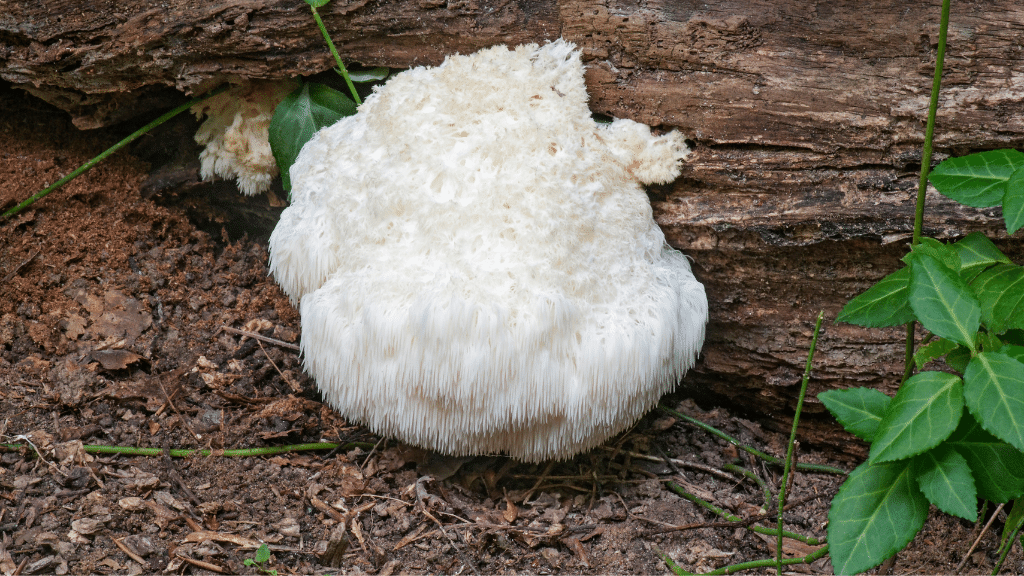
Lion’s mane has been used in traditional Chinese medicine for over 2,000 years. What’s unique about this mushroom is that it’s not only a great medicinal choice, but it’s been shown to be an excellent substitute for crab meat or seafood in general because of its peculiar texture. Some even go as far to say that lion’s mane tastes like lobster. For all the vegans or vegetarians out there that miss seafood, this is a win.
But beyond its culinary versatility, lion’s mane is also chock full of nutrients including fiber, and bioactive and adaptogenic compounds. These compounds are only accessible to humans when broken down correctly using extraction.
Extraction processes are done by breaking down the mushroom using either hot water or alcohol. So, by drinking it in a tea format, humans are able to break down the lion’s mane bioactive compounds because they’re being steeped in hot water.
Make sense?
If not, no worries - we have a handy blog post solely dedicated to extraction processes. Check that out and then pop back on over to continue learning about lion’s mane tea.
If you’re still with us (or have returned back after learning about extraction), let’s dive in further.
What are the benefits of drinking lion's mane tea?
Lion’s mane has numerous health benefits that make it a top choice for supplementation. This is due to the mushroom containing a plethora of antioxidants that boost the body’s natural immune response and aid in good cell regeneration.
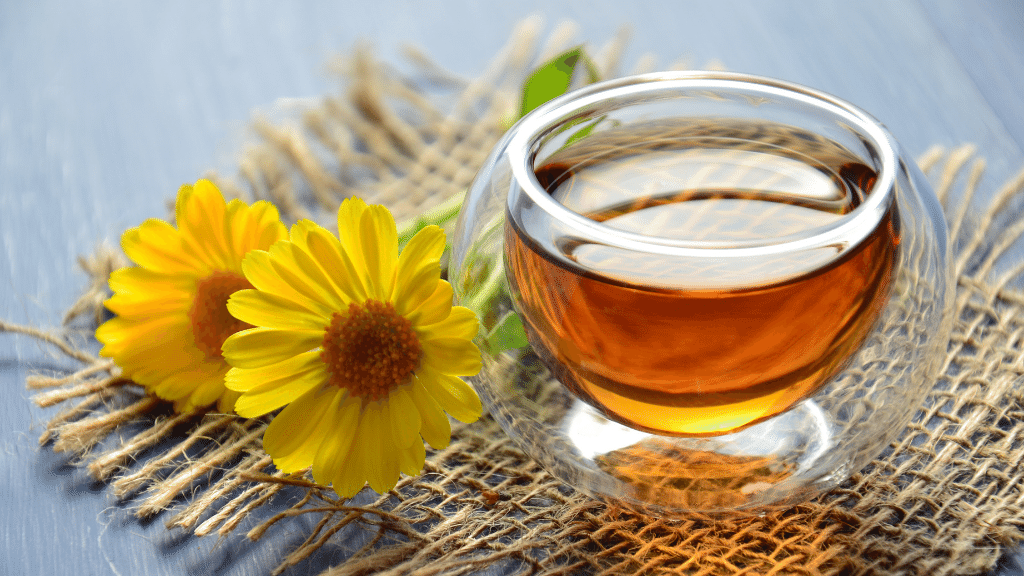
Most notably, drinking lion’s mane tea regularly has been linked to better cognitive performance and, overall, better brain health. When we say better brain health, we mean:
- Improved episodic memory
- Lessened depression symptoms
- Better executive function and decision making
- Prevention of neurodegenerative disease (Alzheimer’s, Parkinson’s)
Beyond these perks, consuming lion’s mane has also been shown to help with heart health, cancer prevention, injury (wound) recovery, gut health, ulcer development prevention, and more. Sounds pretty ideal all around to us.
We put together a complete guide to lion's mane benefits for the body AND mind here.
Drinking lion’s mane tea is an amazing, and easy, way to add lion’s mane supplementation into your daily routine. It just takes a few short minutes - the same amount of minutes it would take you to prep your morning coffee, might we add - and there is a lot of upside to it (*cough* everything we said above *cough).
If you’re thinking about ditching that extra cup of coffee and going for lion’s mane instead, keep reading. Let’s look at where you can find fresh lion’s mane.
Where can I get lion's mane mushrooms for tea?
Lion’s mane mushrooms grow wild in parts of Asia, but if that’s more than a skip, hop, and a jump for you to get to and forage, we have some alternatives to consider. Given that lion’s mane supplementation has become more and more popular over the years, many mushroom farmers grow this special mushroom right on their property to sell fresh for others to make their own supplements or to create supplements themselves.
Alternatively, you can grow lion’s mane at home using a special grow kit.
Options to purchase fresh lion’s mane include:
- Certified online retailers: There are many stores online that sell fresh lion’s mane. We would highly recommend that if you go the online route, look for a Certificate of Analysis (CoA) to ensure the product is grown with the best processes in place.
- Local specialty and/or natural food stores: Whether you have a local co-op that sources fresh grown food, or a Whole Foods down the street, there are a number of specialty food stores - large and small - that carry fresh lion’s mane.
- Your local mushroom farmer: Getting to know your local mushroom farmer is never a bad idea. Support local, learn what species of mushrooms they grow, and *hopefully* purchase some fresh lion’s mane from a trusted source in your own backyard. In fact, we built a nation-wide map for you to find a local mushroom farmer near you.
It’s important to note that you can buy lion’s mane powder pre-made - and we’re totally not against this option if that fits your lifestyle. We would just recommend that you thoroughly check out the company’s CoA to ensure you’re getting the highest quality supplements.
The best lion's mane powder and tincture brands for making tea:
1. RealMushrooms - Organic Lions Mane Mushroom Powder
We absolutely love RealMushrooms brand. And not just because of their commitment to quality and excellence in their production of mushroom supplements. But RealMushrooms also provides third-party lab analysis, transparency in their extraction processes, and uses 100% lions mane fruiting body in their powders.
2. Mushroom Revival - Lion's Mane Focus Tincture
Mushroom Revival is a small but mighty manufacturer of trusted and high-quality lion's mane tincture. They use sustainable and trusted growing practices. Best of all? You'll only find 100% fruiting body in their products. Plus, their lion's mane products are water AND alcohol extracted for maximum medicinal benefit.
What to look for in other commercial lion's mane products
You have to be really careful when buying lion's mane supplement products. There simply isn't much regulation or transparency in the industry. That means you could be buying mostly lion's mane mycelium instead of fruiting body, or lion's mane mushrooms mixed with cheaper mushrooms.
Here's what to look for when choosing a lion's mane brand for making tea:
- 100% lion's mane fruiting body: There is a big debate in the mushroom world about whether the fruiting body is better than mycelium. Until there is more regulation and transparency in the industry, we always recommend choosing 100% fruiting body products so you get the maximum amount of mushroom benefits.
- COA: A certificate of analysis shows you the type of mushrooms in your product, the quantity, whether there are dangerous chemicals or additives, and the volume of active compounds like beta-glucans
- Extract powder: Lion's mane powder that has been pre-extracted means you'll get the most medicinal value from your lion's mane tea. The ideal extraction process for lion's mane includes both hot water AND alcohol extraction. Learn more about the importance of mushroom extraction with our guide here.
How to make lion's mane tea from whole mushrooms
The beauty of drying and making your own lion’s mane powder at home is that you truly can control what goes into the tea you’re making. So, if you decide to go this route, then we’ll walk you through a how-to from drying to steeping. Let’s go.
How to dry lion's mane for tea
In order to make lion’s mane powder at home, it’s super important to dry your fresh lion’s mane mushrooms to the point where you could crack them in half. By drying your lion’s mane mushrooms appropriately, you’ll be able to maximize the shelf life while still maintaining the medicinal benefits, and you’ll be in good shape to eventually grind your mushrooms into a fine powder for tea.
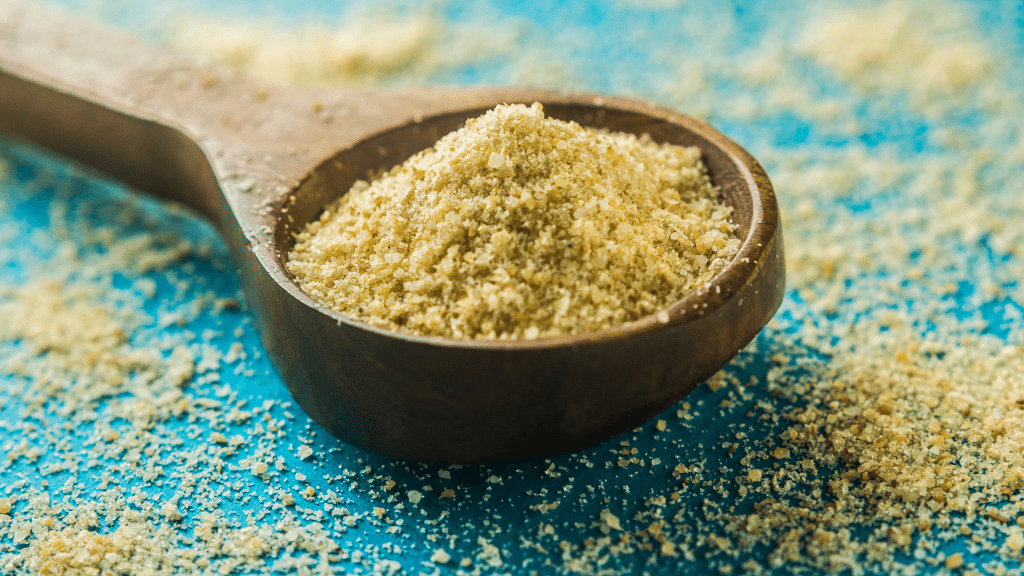
You can dry lion’s mane mushrooms in a number of ways ranging from air drying, oven dehydration, or using a commercial dehydrator. But first and foremost, you need to pursue a drying method that will leave the least amount of moisture possible - trust us. The process we recommend is:
- Wash off any excess residue on your lion’s mane and pat dry gently with a paper towel or cloth
- Cut the fresh lion’s mane into quarter inch pieces and spread evenly in a container or on a sheet
- If you decide to air dry: place them somewhere free from moisture (being near the sun is best). Let them air dry for 7-10 days
- If you decide to put them in the oven: set on low (175 degrees Fahrenheit) and let sit in the heat for an extended period of time to let the moisture evaporate. We recommend flipping them over at the one hour mark, and then letting them sit for another hour.
- If you use a commercial dehydrator: place your mushrooms in a single layer in the dehydrator at 125 degrees Fahrenheit. Leave the lion’s mane in the dehydrator until it has a leathery consistency.
How to grind lion's mane mushrooms for tea
After you’ve dried your lion’s mane, you’re going to want to grind it down into a powder that you can eventually steep in hot water to create lion’s mane tea. Some of the household tools you can use to make this happen include a:
- Coffee grinder
- Food processor
- Magic bullet or small, single serve blender
- Good ol’ mortar and pestle
- Hand mill
- Cheese grater
- Meat grinder
Chances are you have at least one of these in your home so you can break down your dried and dehydrated mushrooms.
After you’ve ground down your lion’s mane, boom - there you have it! Lion’s mane tea powder.
How to store your ground lion's mane for tea
It’s recommended to store lion’s mane mushroom powder in a cool, dry place (think something like a pantry) in an airtight container. It’s also recommended to not make too much powder at once to avoid having to throw out any due to clumping or molding due to moisture contact.
Lion's mane tea recipe
Now we’re getting to the nitty gritty (pun very much intended) of making lion’s mane powder tea. Our recommended step-by-step process is as follows:
- Using filtered water, bring three cups to a boil
- Add in three servings of lion’s mane mushroom powder (1.5 teaspoons total)
- Let the combination simmer for 15 to 20 minutes
- Take off heat and let sit for one to two minutes
- Strain
- Pour into mugs to serve or let chill in fridge
Seems pretty straightforward after all the drying and grinding talk, huh? Enjoy**!
**We’d be remiss not to note that a lot of people think lion’s mane too closely resembles seafood to taste good on its own (even in tea format). If you’re drinking lion’s mane tea regularly, we have some tips to spice it up…literally.
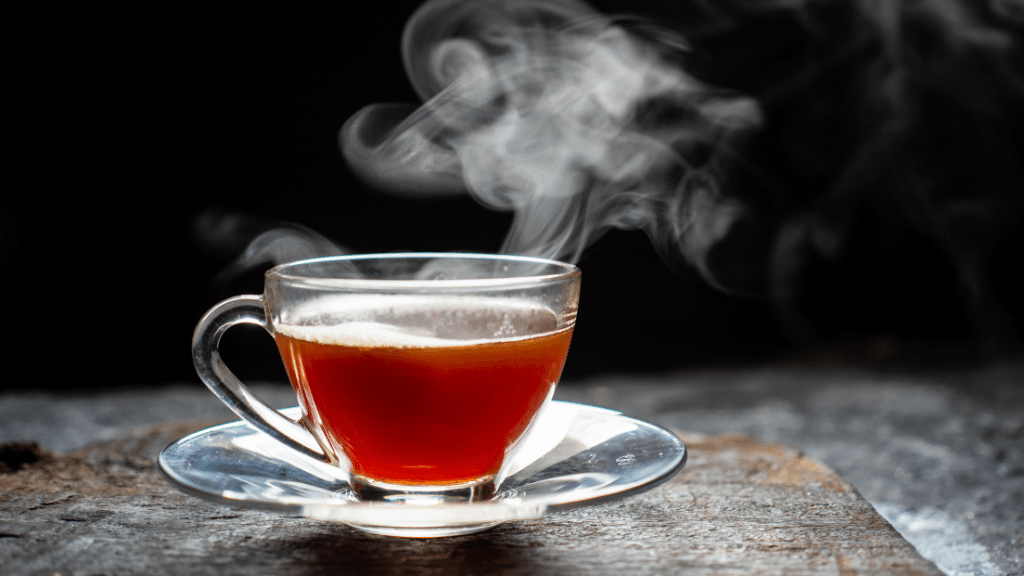
What to add to lion's mane tea to make it taste better
Take your lion’s mane tea to the next level and make it way tastier by:
- Steeping it with spices - this could be chai, allspice, cardamom, cinnamon, and so on, so forth
- Adding in herbal tea bags (black tea tastes really nice with lion’s mane and takes the edge off the taste, but truly any high quality herbal tea will do)
- Mixing in your favorite plant milk - oat, almond, coconut…anything will do
- Adding in low-glycemic sweeteners (think pure maple syrup, raw honey, coconut sugar, stevia, etc.)
- Sprinkling in fresh lemon to cut the taste
- Letting it chill and mixing with a non-sugary juice (lemonade, limeade, etc.)
- Letting it chill and serving as an iced tea with lemon and a low-glycemic sweetener
Can you make lion's mane tea with tincture?
Absolutely! In fact, the person writing this (hi, I'm Kate!) uses tincture in coffee every morning.
There is nothing special about adding tincture to your tea. Simply brew up a batch of your favorite tea (we like herbal!) and add a measured amount of your lion's mane tincture to it. Give it a stir, and then enjoy. It's best to add your tincture while your water is still warm. And no need to worry about the heat diluting the effectiveness - Your tincture was likely already extracted with hot water.
Some sources say to let it steep along with your tea bag. We don't have any evidence to highlight whether allowing it to steep or enjoying it right away is better for you.
This is an easy and convenient way to hide the taste of lion's mane mushroom in the tea. Many tinctures are made with an alcohol base. But we don't find it's noticeable in a mug of tea.
For dosage, be sure to follow your package directions. Usually, a full dropper is a single measured dose.
Lion’s mane tea is meant to be enjoyed - so, make sure you’re consuming it in the way that is best for you. Happy sipping!





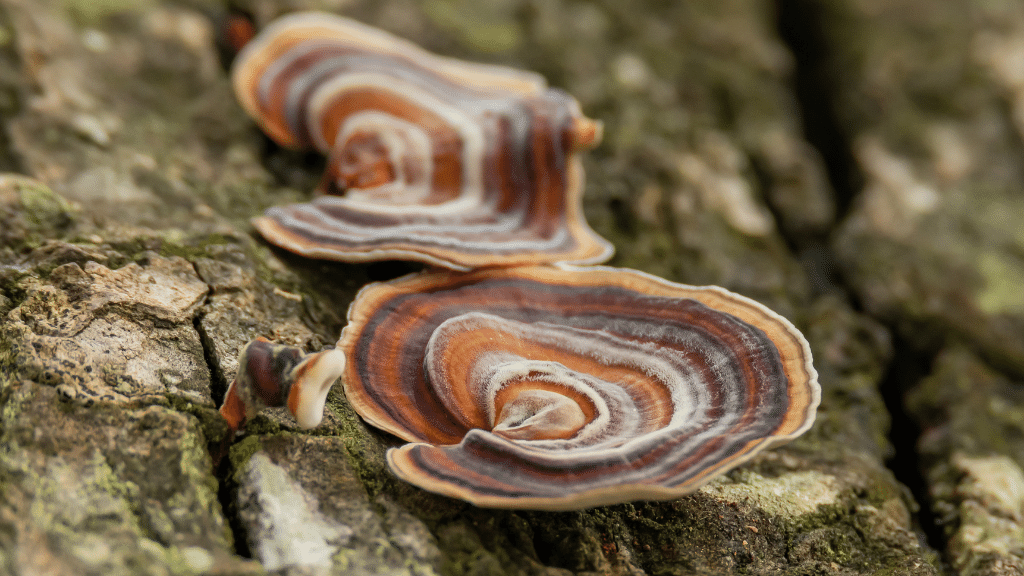
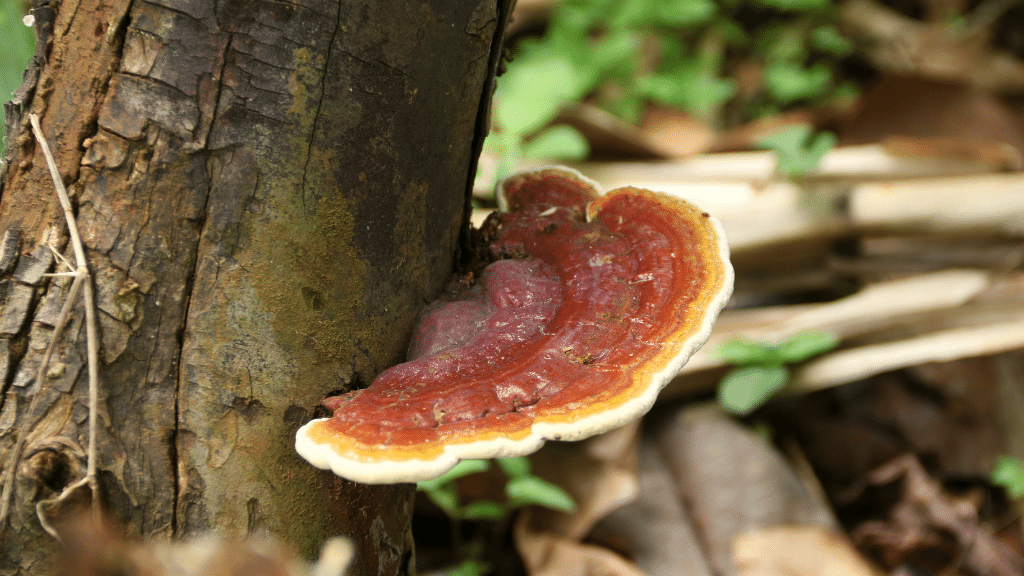


.png)
